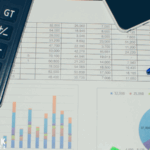In a pivotal shift, ABB has decided to divest its Robotics division to SoftBank Group, opting against its earlier plan of spinning off the division as a publicly listed entity. With this move, ABB aims to concentrate on its core strengths in electrification and automation. The strategic choice reflects ongoing transformations within global businesses to balance innovation with financial prudence. This decision marks a significant transition, involving stakeholders beyond the immediate parties, echoing a larger trend in corporate strategies.
ABB, renowned for its presence in electrification and automation, has historically leveraged its expertise to drive efficiencies and productivity across industries. The move to sell its Robotics division, however, signals a departure from its previous trajectory, where it expanded its robotics capabilities significantly. This decision contrasts with past announcements where ABB had displayed excitement towards the spin-off as a separate company. However, the economic analysis of this decision reveals benefits for ABB while SoftBank gains an established player in the robotics space.
What Drives ABB’s Divestment Decision?
The decision to sell, valued at $5.375 billion, was driven by a comprehensive evaluation by ABB’s Board and Executive Committee. As per the chairman Peter Voser, ABB sees immediate value creation for shareholders in this transaction and plans to deploy the proceeds according to its capital allocation strategies. He emphasized maintaining focus on ABB’s long-term strategies in electrification and automation. This choice outlines ABB’s pragmatic approach towards reinforcing its leadership in sectors where it remains an innovator.
How Will ABB Robotics Benefit from SoftBank?
ABB CEO Morten Wierod reveals that SoftBank’s integration of technology and industry know-how offers new opportunities for the Robotics division. The collaboration between ABB’s Robotics experience and SoftBank’s AI capabilities foresees advancements in robotics technologies. SoftBank’s Chairman, Masayoshi Son, envisions this partnership as pivotal for their venture into Physical AI, signaling ambitious future implementations in Artificial Super Intelligence. This step aligns with SoftBank’s aspiration of merging AI and robotics.
The divestment impacts ABB’s operational structure, with the Robotics division transitioning to discontinued operations from the fourth quarter of 2025. The Machine Automation division will realign under Process Automation. Upon finalizing the deal, ABB projects a non-operational pre-tax book gain around $2.4 billion. These financial shifts highlight ABB’s restructured focus, optimizing its business units for streamlined operations.
Comprising about 7,000 employees, ABB Robotics reported significant financial metrics for 2024, contributing robustly to ABB’s overall revenues and profitability. Past affiliations with robotics indicated strong adherence to Europe’s industrial roots, yet with this sale, a significant European asset now transitions to non-European stewardship, reflecting changing dynamics in global asset ownership.
Anticipated to close by mid to late 2026, the transaction awaits regulatory green lights and other conditions customary to high-profile deals. As the landscape evolves, market participants remain observant of how these strategic moves align with overarching trends in industrial technology advancements.
The decision by ABB to sell the division rather than spin it off suggests a careful balance of risk and reward. Both ABB and SoftBank aim to solidify their respective focuses and combine expertise for future prospects. Utilizing existing strengths in electrification and automation, ABB aligns itself for potential avenues of growth. Understanding these strategies offers insights into corporate decisions shaping industry futures.










